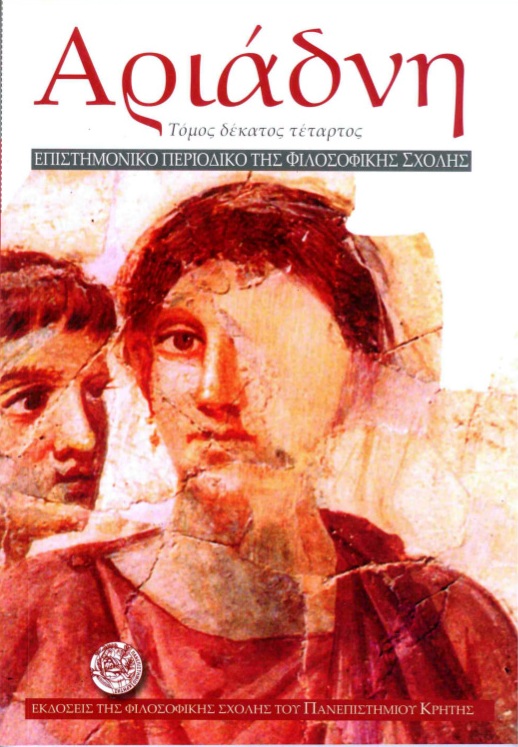Από τα ηλιόλουστα νησιά της Γενιάς του 1930 στα διφορούμενα νησιά του φεγγαριού της μεταπολεμικής ‘λυρικής πεζογραφίας’
DOI:
https://doi.org/10.26248/ariadne.v14i0.933Περίληψη
AT THE END of the German occupation in Greece an important number of works of prose fiction, which the critics named «lyrical prose», appears. Its two significant representatives, Alkis Aggeloglou and Asteris Kovatzis, criticize rigorously the previous literary generation of the thirties. The new «generation of forties» promises to usher a new era in Greek literature. The «lyrical prose» of the first postwar decade subverts the «optimistic» representations of the insular land in the literature of the thirties that depicts the island as a mystical place, due mainly to the luminous energy of the timeless apollonian Greek sun. On the contrary in the symbolistic narratives of Alkis Aggeloglou, Kostas Stergiopoulos, Irene Galanou and George Themelis the island is portrayed as a prison, a closed society, isolated from the outer world. The Fate is common for all people regardless of the place they live. The lyrical writers refer mainly to the autumn or the winter and they focus their attention on describing evening and nocturnal landscapes. In their writings the image of the moon, of the obscure and latent moonlight, and the cloudiness of the autumnal mornings recur continually. On the other hand the summer and the sun are described as torturous, for the heroes, forces of nature.
Λήψεις
Δημοσίευση
Πώς να δημιουργήσετε Αναφορές
Τεύχος
Ενότητα
Άδεια
Οι εργασίες που δημοσιεύονται στο περιοδικό μπορούν να χρησιμοποιηθούν ελεύθερα για μη-εμπορικούς σκοπούς με την προϋπόθεση ότι γίνεται αναφορά στους συγγραφείς και την πρώτη δημοσίευση. Στην περίπτωση που το άρθρο αλλοιωθεί, τροποποιηθεί ή δημιουργηθεί κάτι νέο βασισμένο στο αρχικό, το έργο που θα προκύψει θα μπορεί να διανεμηθεί μόνο με την ίδια ή παρόμοια άδεια (Creative Commons Attribution-NonCommercial-ShareAlike 4.0 International License).


